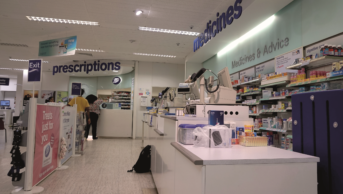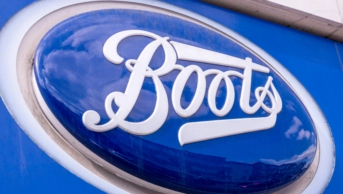
Shutterstock.com

Source: PDA Union
Despite the stalemate, Mark Pitt, assistant general secretary of the PDAU, says talks between Boots and the PDAU have been “productive”
Discussions between Boots and the Pharmacist’s Defence Association (PDA) Union to establish a possible voluntary arrangement for the future representation of Boots pharmacists have ended in a stalemate.
The meetings were convened in June 2018 as part of the legal process following a ballot result where 87% of pharmacists voted to end the agreement with the Boots Pharmacists Association (BPA), which blocked the PDA Union from being recognised.
But Boots and the PDA Union were unable to agree on who should be included in the bargaining unit.
The PDA Union has consistently sought to represent “all pharmacists registered with the General Pharmaceutical Council and the Pharmaceutical Society of Northern Ireland (excluding those of Area Management status or equivalent and more senior to them) and preregistration graduates, who are employed by Boots Management Services Ltd”.
However, Boots is seeking to include only store-based pharmacists in the bargaining unit.
“The PDA team made clear throughout our discussions that we want to improve employee relations at Boots,” explained Paul Day, national officer at the PDA Union.
“However, we are not the BPA — we are an independent trade union acting in the interests of Boots’s pharmacists and the relationship will naturally be different.
“Although we listened carefully and understood the company’s position we were not convinced by their suggestions to exclude more than 300 pharmacists from the bargaining unit.
“This means we could not progress a voluntary agreement at this time,” he said.
Andrew Caplan, pharmacy and retail operations director at Boots UK, said: “We’ve had active and constructive conversations with the PDA Union regarding their application for voluntary recognition, but unfortunately, rather than extend these discussions, the PDA Union has decided to apply to the Central Arbitration Committee to start the statutory process instead.
“Our discussions so far have centred on how to make any future agreement workable, and who the agreement should cover. We also feel strongly that our pharmacists should have the opportunity to vote on any proposed voluntary agreement — something the PDA Union didn’t agree with us on.
“We’ll continue to listen to our pharmacists and keep them fully informed as the process goes on.”
The Central Arbitration Committee (CAC) will now consider the PDA Union’s request for recognition, which could take up to ten working days. If it accepts the request the CAC will then try and help the PDA Union and Boots to reach an agreement within a 20 working day deadline. If there is still no agreement, the CAC will then impose an agreement which Pitt said will be “restrictive and legally binding”.
Despite the disagreement, Mark Pitt, assistant general secretary of the PDA Union, said that both parties were approaching the situation in a “positive and constructive way” and that discussions had been “productive” in terms of building the relationship between the PDA Union and Boots.


